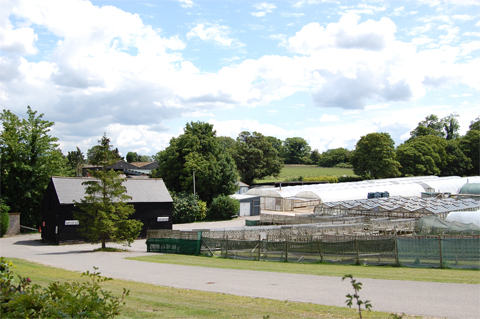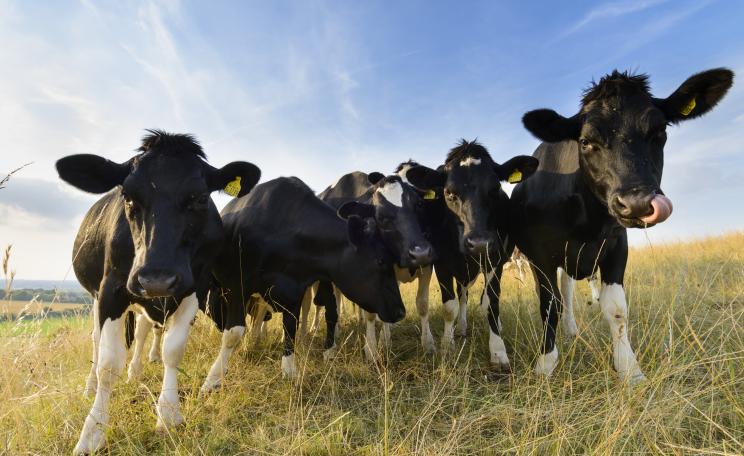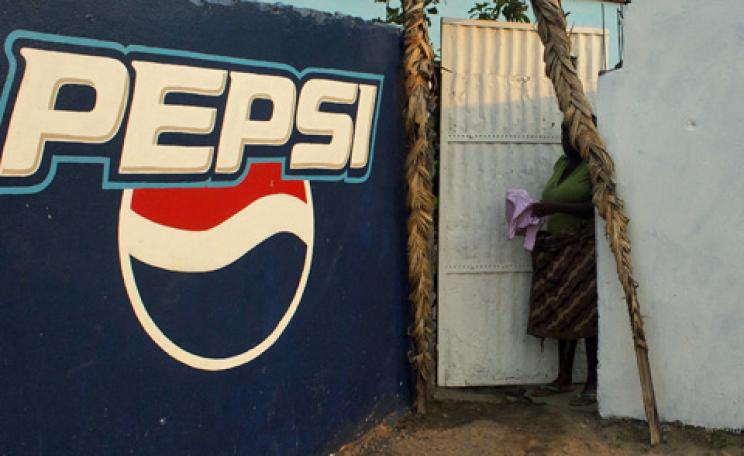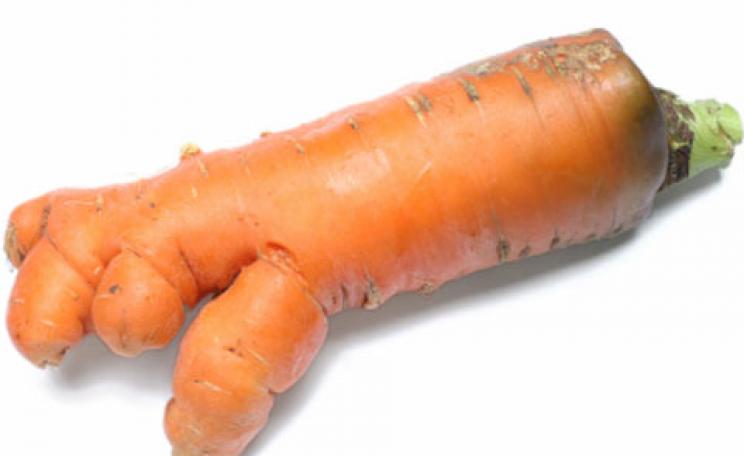Could the community farm provide a blueprint funding model for future food production?
‘Let's buy a community farm' urged the email round-robin that's been making it's way around the inboxes of London's green community since June.
Sent by Anna Francis, One Planet Food Program Manager at sustainability charity Bio Regional, the message explained that a 41-acre farm with bungalow, green houses, polytunnels, irrigation system, woodland, orchards and shop was for sale in Sutton and proposed that by co-operatively purchasing it Londoners could play a vital role in re-localising the cities food supply.
‘The land is £1.15m,' the call to arms concluded. ‘So we only need 780 of us to pledge £1500 each (or more or less). With 7 million people living in London, surely we can do it?'
The capitals' local food stalwarts are rising to the challenge and in six weeks the pipedream has become a realistic proposition.
 Individuals have pledged £300,000 and an assortment of organisations, businesses and charities a further £500,000. 'Ideally we'd like to raise an additional £700,000,' explains Bio Regional's One Planet Food Network Manager Seeta Rajani. 'That would cover the total purchase price and leave £350,000 for start up capital. Considering so far we've had virtually no publicity, it's an achievable target.'
Individuals have pledged £300,000 and an assortment of organisations, businesses and charities a further £500,000. 'Ideally we'd like to raise an additional £700,000,' explains Bio Regional's One Planet Food Network Manager Seeta Rajani. 'That would cover the total purchase price and leave £350,000 for start up capital. Considering so far we've had virtually no publicity, it's an achievable target.'
Shares are available for a recommended £1500 but can be purchased for any amount no matter how small or large. In keeping with a co-operative ethos a one-person-one-vote policy will ensure everyone has the opportunity to an equal say regardless of financial means.
The promise of upping London's quota of locally grown food has enthused a disparate collection of residents. Pledges have come in from and open planning meetings attended by teachers, civil servants, pub owners, architects, carpenters, accountants, lawyers, growers, tree surgeons, journalists and engineers.
Whether the project runs as one enterprise or a hub of cottage industries is yet to be decided but regardless ideas for how to utilise the site - if the sale goes through - have already begun to pour in.
Suggestions include keeping goats to make cheese, a forest garden, a pottery, a furniture workshop, bee keeping, permaculture courses, an apple press, cider making, community feasts, fruit preservation, a bakery, campsite and an ethical events service.
'It's the first opportunity in London for people to come together and buy land,' says Rajani. 'It's an amazing chance to provide more access to low carbon, local food and it would be more impacting than anything else happening in the city at the moment - a 41 acre site can feed 700 families a week.'
 London fields?
London fields?
Less than a hundred years ago London was surrounded by agricultural land and market gardens. This meant a substantial proportion of the cities food needs could be met locally. Urban sprawl, developments such as Heathrow airport and financial viability have drastically reduced the numbers of farms and horticultural centres.
The results of a survey carried out by ADAS in 2005 didn't bode well for the future of farming in London. It found there were just 12,064 hectares of farmland in Greater London (8 per cent of total land area); 23 per cent of London farmers feared their businesses wouldn't survive past 2008, and that 57 per cent of London farmers were either approaching or over retirement age and less than 1 per cent were under 30.
'We need to re-create what London used to be like,' explains Rajani. 'East Sussex was once the bread-basket of the city but today it's an enclave of posh housing. If we can get this off the ground it could inspire other parts of London to start similar projects and get the city back on track to meet it's food needs in the way it used to. Flying and shipping in produce that could be grown locally is madness.'
The need for the project in terms of its potential local impact is equally convincing. According to Bio Regional's own research 25 per cent of Sutton's ecological footprint comes from food - something that could be decreased if production was localised.
Health wise 29 per cent of Suttons Primary school children are overweight and 25 per cent of adults obese with 82 per cent of adults and 63 per cent of children not getting their five-a-day. By providing access to affordable, locally grown organic food and providing a space where residents can learn and be inspired about food growing these numbers should steadily lower.
Bio Regional's One Planet Food program already runs a host of projects in Sutton including a mobile Veg Van, a truly local veg box scheme and the thriving 7.5acre Sutton Community Farm at the Woodcote smallholdings near Wallington.
The project in the offing would be an epic scale up. Can a co-operative farm work on such a large scale?
 'Of course,' says Rajani. 'The sites been a farm for the last 30 years so a lot of infrastructure is already there - the bulk of the work for the first two years will be converting it to organic. Although they'd be opportunities for all Londoners to get involved we'd employ experienced growers and site managers to oversee it. There are co-operatives all over the country pulling off similar feats. Foodhall Farm raised £800,000 through co-operative shares.'
'Of course,' says Rajani. 'The sites been a farm for the last 30 years so a lot of infrastructure is already there - the bulk of the work for the first two years will be converting it to organic. Although they'd be opportunities for all Londoners to get involved we'd employ experienced growers and site managers to oversee it. There are co-operatives all over the country pulling off similar feats. Foodhall Farm raised £800,000 through co-operative shares.'
The current status of the scheme is Bio Regional have made an offer for the full asking price but are yet to hear back from the estate agents. To their knowledge only one other offer is on the table. 'We're on tenterhooks,' says Rajani. 'It's too exciting to think about.'
Opportunities to pledge support and get involved are multifarious. 'Unfortunately, the thing we really need right now is money,' says Rajani. 'But we're also grateful for any professional expertise and help in getting the word out about this incredible opportunity for Londoners to reconnect with the land and reclaim their food supply.'
To buy a share, offer advice, promote the project or attend the next open meeting go to www.suttoncommunityfarm.org.uk/land/
Sarah Bentley is a freelance journalist
| READ MORE... | |
 |
HOW TO MAKE A DIFFERENCE Reclaiming a derelict site to create a community garden The story of how a group of dissatisfied residents pulled together, got funding, and created a blooming community garden where the work, and the rewards, are shared |
 |
HOW TO MAKE A DIFFERENCE CASE STUDY: growing fruit and veg in the city A host of communal vegetable gardens are springing up in the concrete heart of East London. Ben Willis meets the woman coaxing life from the urban jungle |
 |
HOW TO MAKE A DIFFERENCE 10 resources for better food growing Food and farming is in crisis but there is hope for the future - from organics and Slow Food to permaculture and land share schemes |
 |
HOW TO MAKE A DIFFERENCE Persuading your local station to plant fruit trees Armed with just a good idea and big dose of enthusiasm you can transform a bleak area into a mini orchard. Plus, the best way to approach a station manager... |
 |
HOW TO MAKE A DIFFERENCE CASE STUDY: turning farmland into allotments Chyanhall Allotments in Cornwall has provided a successful model for farmers and landowners to generate income while providing a grow-your-own space for the community |








